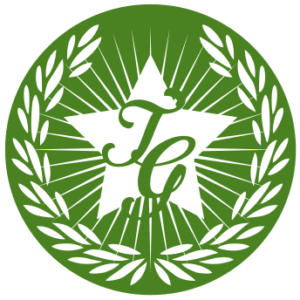Quite a long time ago, people were much, much smaller than they are now. This is where our fairy legends come from, only so much time has passed that we’ve forgotten that the little people were actually us. Bigstickasaurus hasn’t forgotten though, he’s still full of the stories from when we were small. He even told me one. In those days, we, the little people, would suspend ourselves from his spikes like ornaments on Christmas trees. Our ancestors would sit there, swinging backwards and forwards, shouting out ideas for a full moon show, practicing under cover of the new. The full moon shows were always spectacular and involved incredible circus feats. After they were finished, the little people would jump off their swings all at the same time, and perform synchronised somersaults as they landed. Then, after a prolonged series of curtsies and bows to a very loud round of applause,
Dearly beloved, I have come here today to write in defence of pigeons. Specifically, feral pigeons, those modern descendants of the domesticated type. Wood and other wild pigeons are fine and all that, but I do not speak of them here. Feral pigeons, or pidgepots as I like to call them, are some of the most memorable birds that one is likely to encounter in a grimy inner-city environment. I should know, given that I spend at least an hour every day feeding them. My love of pidgerooskis started unintentionally. As I have elsewhere reported, I accidentally installed Pigeon TV from the Lidl in my flat a few years ago. Whilst I have moved onto a direct feeding mechanism (i.e. my hand out the window and/or seeds left on the windowsill), Pigeon TV enabled me to form a lasting bond with three pigeons in particular: Axe Neck, Brownie, and Whitey. However,
They say ‘history repeats itself’ and it does, of course. I’ve got a PhD in history, so you can trust that I know what I am talking about. Anyway, this tree is actually a very old tree and it has lived through a time which in some ways resembles the one we have now. Be prepared then reader, for this is a cautionary tale. The reason this tree on Linchmere Common is bendy, is because during its lifetime the sun disappeared. As such, the tree, not having eyeballs to see, just gradually reoriented itself to a second source of power and energy: the molten core of the earth. When the sun came back, the tree turned upwards again to the original, greater source of energy. It’s stayed growing that way for some time now, but I have it on good authority that it may well have to make another turn soon.
Once upon a time, there was a girl who always tried her hardest at everything. It was a time when the earth was dry and made of rubble and dust. A time when everything was scorched, a little red, and very, very dry. The girl was the last girl but she did her best not to think about that. She walked the land picking up this thing and that, rearranging them into interesting shapes so that she might populate the sparse land with something like creation. So that when her eye scanned a horizon, she would know where she had lately been and where was still to traverse. As time went by, the last girl learnt to dig into the ground to find things to make her sculptures with. She found bones and roots, rocks and ancient mycelial webs, shells and fossils: the myriad remnants of an ancient world. She brought
This elegant sculpture is of King Harold, the legendary Horse King of Selhurst Common. I know it’s a bit far away, but there was a fence in the way, so I couldn’t get any closer. Whilst the landowner is enlightened enough to commemorate empires of horses, they are not enlightened enough to let people get close enough to properly worship the past. If I could have gotten closer, the base on which the horse head is resting would reveal to me an epitaph relating the mighty deeds of King Harold, from a time not too long ago. A time which could have extended to the present, if we human’s hadn’t turned out to be so narcissistic about who we celebrated and raised up in our myths and legends. In the olden days, we shared the mythic space with legendary beasts of which King Harold is a type. Beasts which soared in
